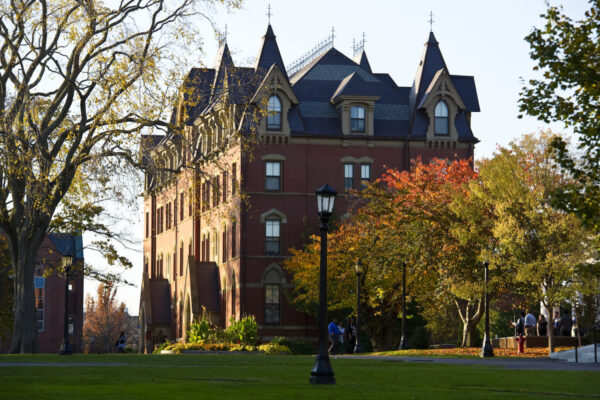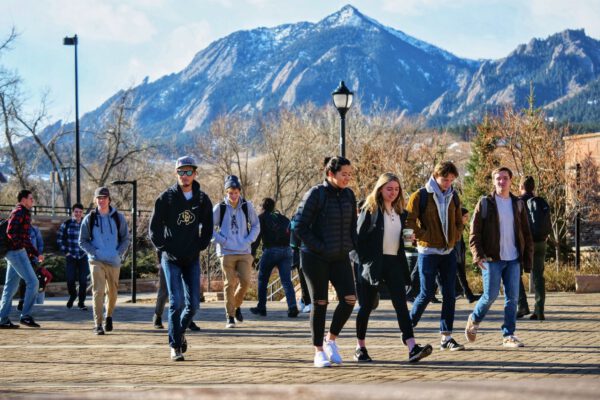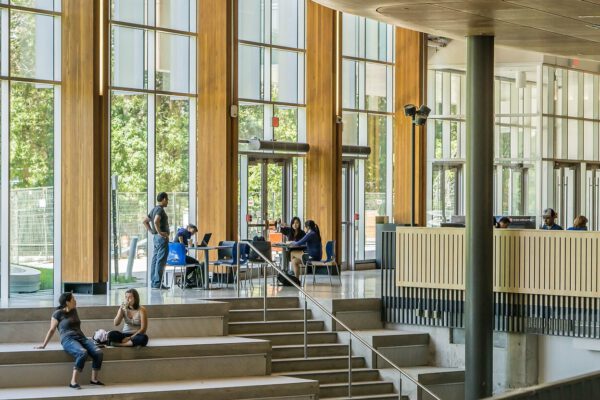By Derek W. M. Barker and Harry C. Boyte
To put it mildly, the American electoral system is troubled. The republican system of government was designed to withstand and take advantage of our tendency to divide into factions, yet today the nation suffers from deep polarization, acrimony, and even hatred. A new poll by the group Braver Angels, featured Oct. 7 in USA Today and Newsweek, finds that a majority of Americans fear violence and crisis around the upcoming election. The current division also coincides with a concerning long-term decline in confidence in government and public institutions—including higher education.
Higher education has a crucial role to play in this troubled time, one which could help turn the dangers into opportunities for reconnection with civic life.
For decades, colleges and universities have had the conviction that they should stay neutral in politics. This narrow view of the role of higher education, informed by a shrunken view of politics as partisan warfare, is fed by many forces—narrow definitions of research, meritocratic views of higher education as a sorting mechanism, and incentive structures based on rankings that have increasingly detached higher education from society, among others.
For the most part, higher education has seen its civic role as preparing students to be informed citizens. The problem is than an informed citizenry can still be bitterly divided. Indeed, despite the rise of the internet and social media, arguably our citizenry is increasingly self-sorted into tribes. Rather than encouraging dialogue across differences, research suggests that higher education may actually reinforce students’ social bubbles.
We propose that higher education take this moment of division as an opportunity to recommit to understandings of colleges as civic centers for discussion and public work in the life of communities. The very notion of liberal education is centered on freedom from dogma and ideology, which entails robust public discussion across differences. These ideas were once widespread, especially in land-grant universities, Historically Black Colleges and Universities, and locally rooted private colleges. They fed into the Truman report in 1947, which declared that “The first and most essential charge upon higher education is that . . . it shall be the carrier of democratic values, ideals, and processes.”[1]
In this time of stress, higher education needs to reclaim its democratic role as bridge builder and commit to what might be called a “higher partisanship” beyond partisan warfare; that is, a forceful commitment to the democratic process itself without favoring any particular viewpoint.[2] Colleges and universities can educate future citizens in the skills and habits they will need to make decisions and work together with others of different backgrounds and perspectives. They can convene public discussions and frame issues for constructive dialogue. Research has shown that experiences in dialogue and deliberation can make significant impacts on future citizens’ attitudes towards politics.
Campuses around the country are seeing stirrings of this sort of civic engagement, conveying to students and others that democracy is far more than an electoral conflict. A coalition of higher education partners working with the National Issues Forums Institute has come together to convene dialogues on campuses around the country on controversial topics such as free speech and policing. Braver Angels, a citizen movement with the purpose of depolarizing America, has created an initiative called Hold American Together that asks Americans to eschew violence in the election whichever side it comes from.
These are signs of higher education remembering its role as “agents and architects”[3] of a democratic society. It has never been more relevant.
[1] President’s Commission on Higher Education, and George Frederick Zook, Higher Education for American Democracy: A Report (Washington: U.S. Government Printing Office, 1947).
[2] See also Martín Carcasson’s work on passionate impartiality in “Rethinking Civic Engagement on Campus: The Overarching Potential of Deliberative Practice,” Higher Education Exchange (2013).
[3] Harry Boyte and Elizabeth Hollanderon, Wingspread Declaration on Renewing the Civic Mission of the American Research University (Boston, MA: Campus Compact, 1999).
If you have any questions or comments about this blog post, please contact us.


